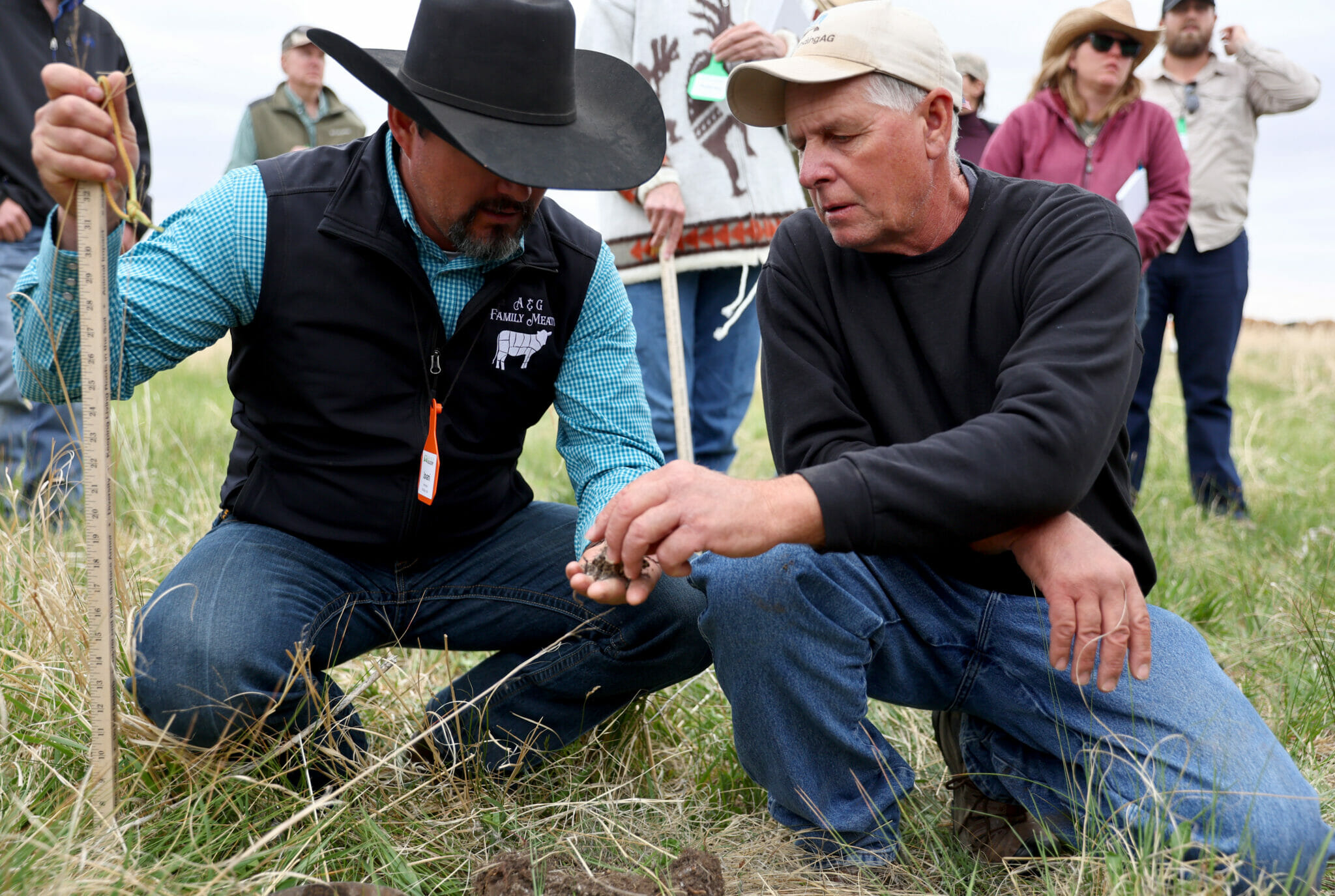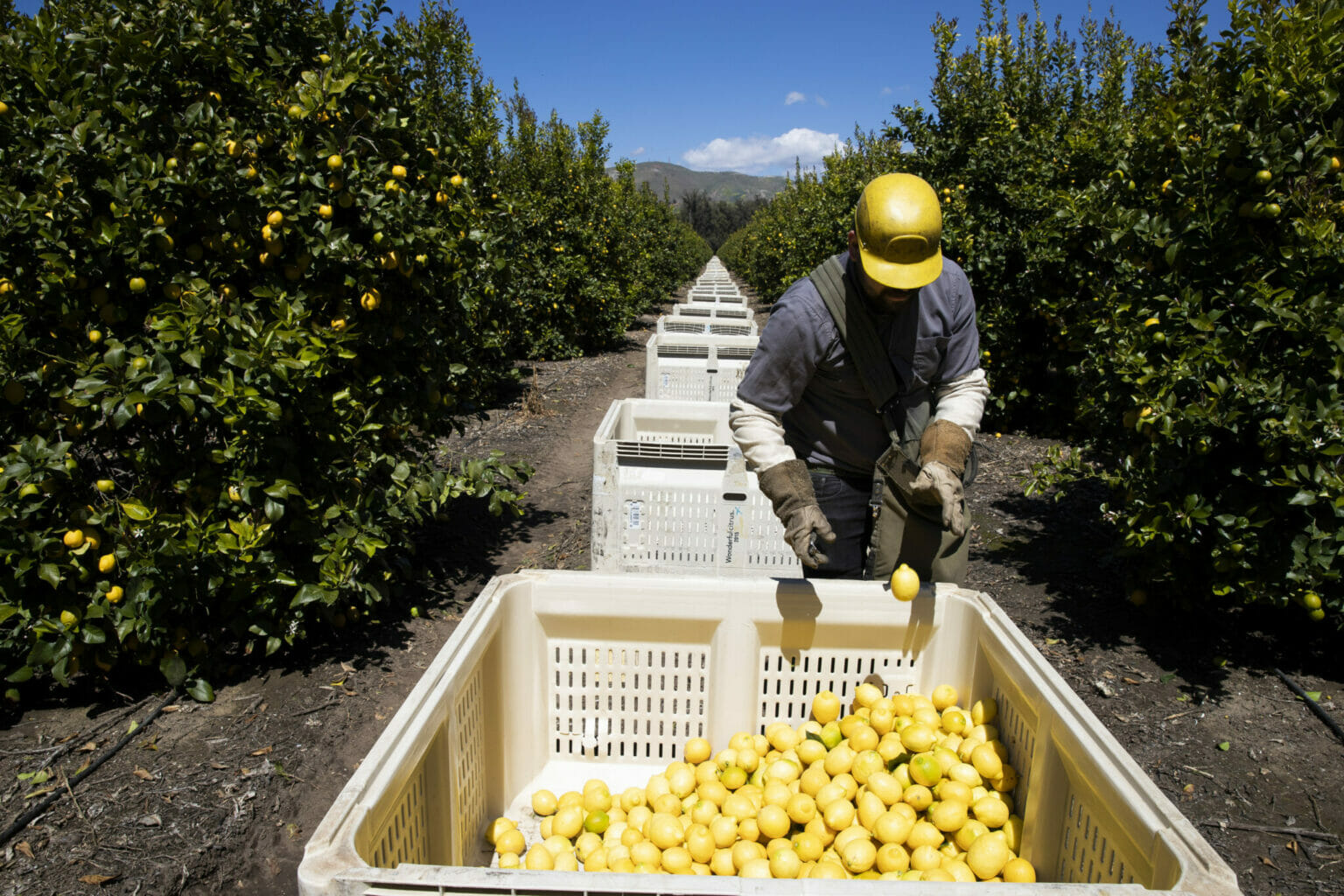World hunger is on the rise. In two years, the number of people who are considered “severely food insecure” — in plainer terms, desperately hungry — has jumped, horrifyingly, from 135 million to 276 million, UN Secretary-General António Guterres said on May 18. In addition to Russia’s war in Ukraine and the Covid-19 pandemic, “the climate emergency is another driver of global hunger,” Guterres said, adding, “Over the past decade, 1.7 billion people have been affected by extreme weather and climate-related disasters.”
Earlier this year, when we at Covering Climate Now chose “Food & Water” for this year’s joint coverage week – June 27 to July 1 – we did not fully anticipate how tragically relevant the subject would be. And yet, the world’s current food crisis is only a preview of conditions to come if climate change remains unchecked. The good news is that food and water also offer abundant climate solutions that, done right, can also go a long way towards addressing hunger.
To help orient journalists to the climate connections to Food & Water, below are five key subjects to explore and consider covering.
- Farming. Climate change is already having a major impact on crop yields and livestock productivity worldwide. At the same time, many industrialized farming practices are huge emitters of carbon dioxide and are causing incredible damage to soil and the environment. Change in our farming practices, including through “regenerative agriculture,” would both help farms become more resilient to climate change and reduce their contribution to global heating. Around the world, some farmers and experts, especially Indigenous ones, are pointing to ways forward — but powerful interests back the status quo.
- Justice. It’s a common misconception that world hunger results from there being not enough food to go around. In fact, often there’s more than enough, even as countries’ populations climb. The problem can instead be more a matter of whether societies, at international and local levels alike, work together to equitably distribute food. Often, they don’t, resulting in poor countries in widespread famine – and in richer countries in “food deserts” and many farmworkers being unable to afford the very food they help produce. Efforts to reconceive our food systems amid climate change are also can’t-miss opportunities to improve their equity.
- Our diets and food culture. Climate consciousness is one factor that is leading more people worldwide to go vegetarian or vegan, which has contributed to an explosion in popularity of alternative proteins and non-dairy milks. But these well-trodden stories just scratch the surface of how changes in our diets are essential to curbing climate change — and, critically, no one solution is a fit for all cultures and budgets.
- Our food infrastructure. Tremendous amounts of energy and resources go into how food and water are harvested, processed, packaged, and ultimately delivered to consumers. Food grown in rich nations, for example, might be shipped across the world for processing and packaging – only to be shipped back for consumption. Throughout these many processes, waste is a constant. How can reexamining our food infrastructure – from harvest to transport to supermarkets and kitchen tables – help reduce emissions?
- Biodiversity. Under industrialized farming, many farms produce very limited varieties of key crops. For large farms, this helps maximize yields and profits, but it also makes our food systems especially vulnerable to extreme weather and crop-killing disease – both of which are becoming more common amid climate change. Increasing diversity in our crops is good for climate resilience, good for soil health, and ultimately good for human health. Smaller farms at the vanguard of change are also finding that it’s good for their bottom line.
These are just a beginning; we urge colleagues also to delve into our Food & Water Climate Reporting Guide, published last week. In the coming weeks, we look forward to working with journalists everywhere to illuminate this crucial aspect of the climate emergency.
From Us
Local climate reporting. Join us on Twitter today at 6 pm US Eastern Time for a conversation with CCNow Journalism Awards finalists Kelly House, of Bridge Michigan, and Erin Stone, of LAist. With them, we’ll discuss both their shortlisted work — which you can check out here — and reporting on climate for local audiences. Set a reminder for the Spaces now!
Noteworthy Stories
Failing rains, famine. Following four consecutive droughts, millions in the Horn of Africa are going hungry. As the war in Ukraine diverts the focus of global aid and food prices skyrocket, the hardest hit areas are threatened by famine. By Obi Anyadike at The New Humanitarian…
You call that a climate plan? House Republicans are set to unveil their plan for climate, energy, and environmental issues, if midterm elections give them control of Congress. The plan, however, calls for increasing fossil fuel production, prompting scorn from critics. By Maxine Joselow and Jeff Stein at The Washington Post…
G7. Energy and environment ministers from some of the world’s largest economies, in advance of the G7 summit later this month in Krün, Germany, agreed to redirect capital from overseas fossil fuel projects to clean energy. The move might avert some of the “carbon bomb” projects that the Guardian recently identified, but others would remain on the table. From Fiona Harvey at the Guardian…
Going electric. The Los Angeles city council voted to ban gas appliances in new construction buildings, aligning the city with more than 50 other California cities that have done the same. From Sammy Roth at the LA Times…
Lies in the name of Black Gold. A new docuseries on Exxon’s efforts to deceive the public about climate change is available for streaming on Paramount Plus…
Republication Recommendations
The following stories deserve special consideration for republication by CCNow partners:
- They Once Worked for Big Oil’s Enablers. Now They Refuse to be Complicit — the Guardian, as part of their ‘Climate Crimes’ series with CCNow
- The Village that Stood up to Big Oil – and Won — the Guardian, as part of their ‘Climate Crimes’ series with CCNow
- Big Tobacco’s Toxic Waste Dodge – 360info
For partner outlets: To submit stories for sharing, please use this form. As always, instructions for republishing and the full list of stories available for republication can be found in our Sharing Library.
Odds & Ends
Cannon fodder. A new Media Matters study shows how right-wing media outlets have used President Joe Biden’s climate goals to systematically defend the fossil fuel industry. From Ted MacDonald at Media Matters.
COP27. The website for the next United Nations climate change conference is live, complete with information on travel to and accommodations in Sharm el-Sheikh, Egypt. COP27 is scheduled for November 6 to 18, and governments are on the hook to bring significantly stronger climate plans than they mustered for last year’s COP26. Check it out.
Jobs. The Global Investigative Journalism Network has a fellowship for investigative journalists to spend a year working on pressing issues of social justice. High Country News is looking for a freelance social media specialist. And Nexus Media News is looking for freelancers to cover climate change and environmental justice.

